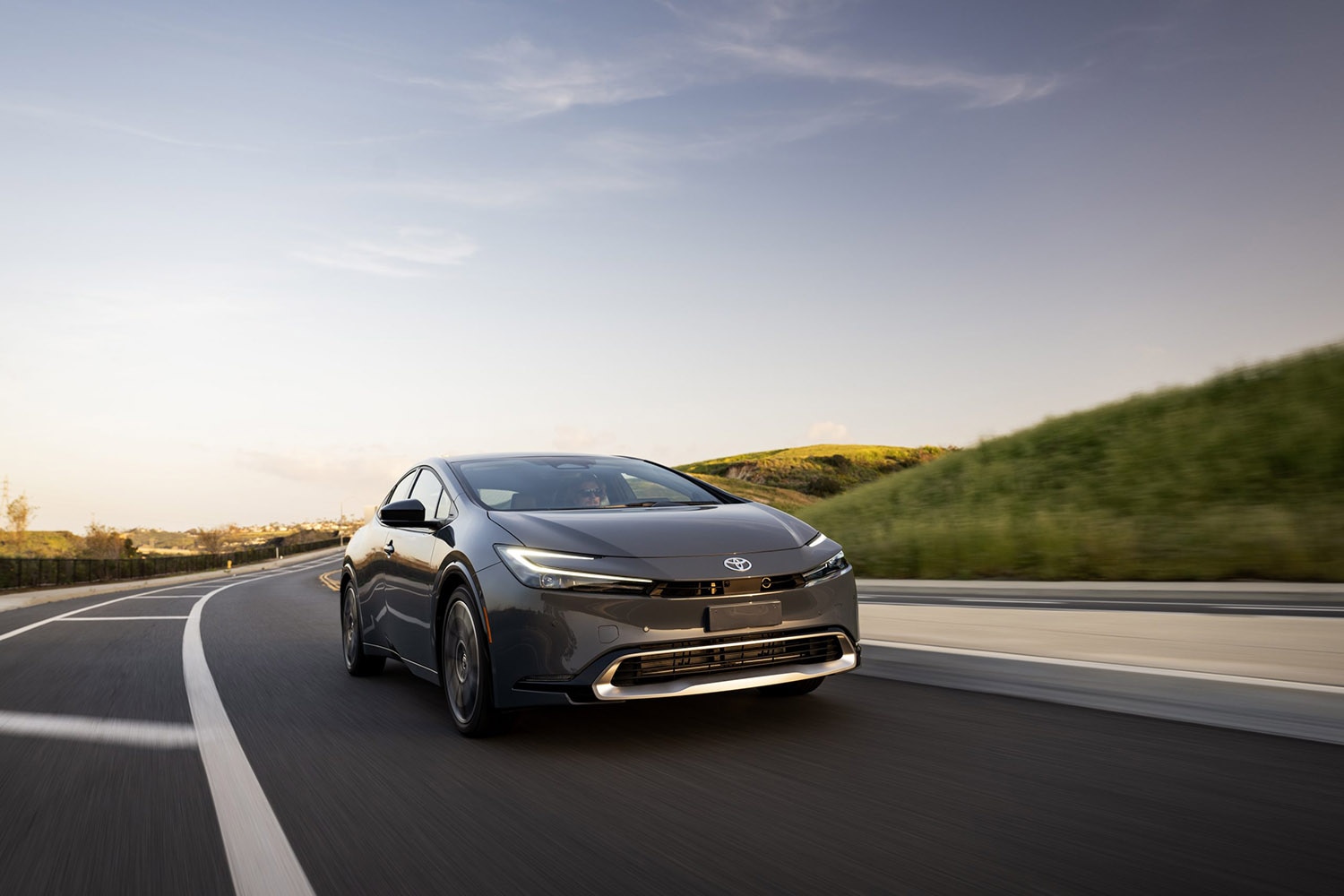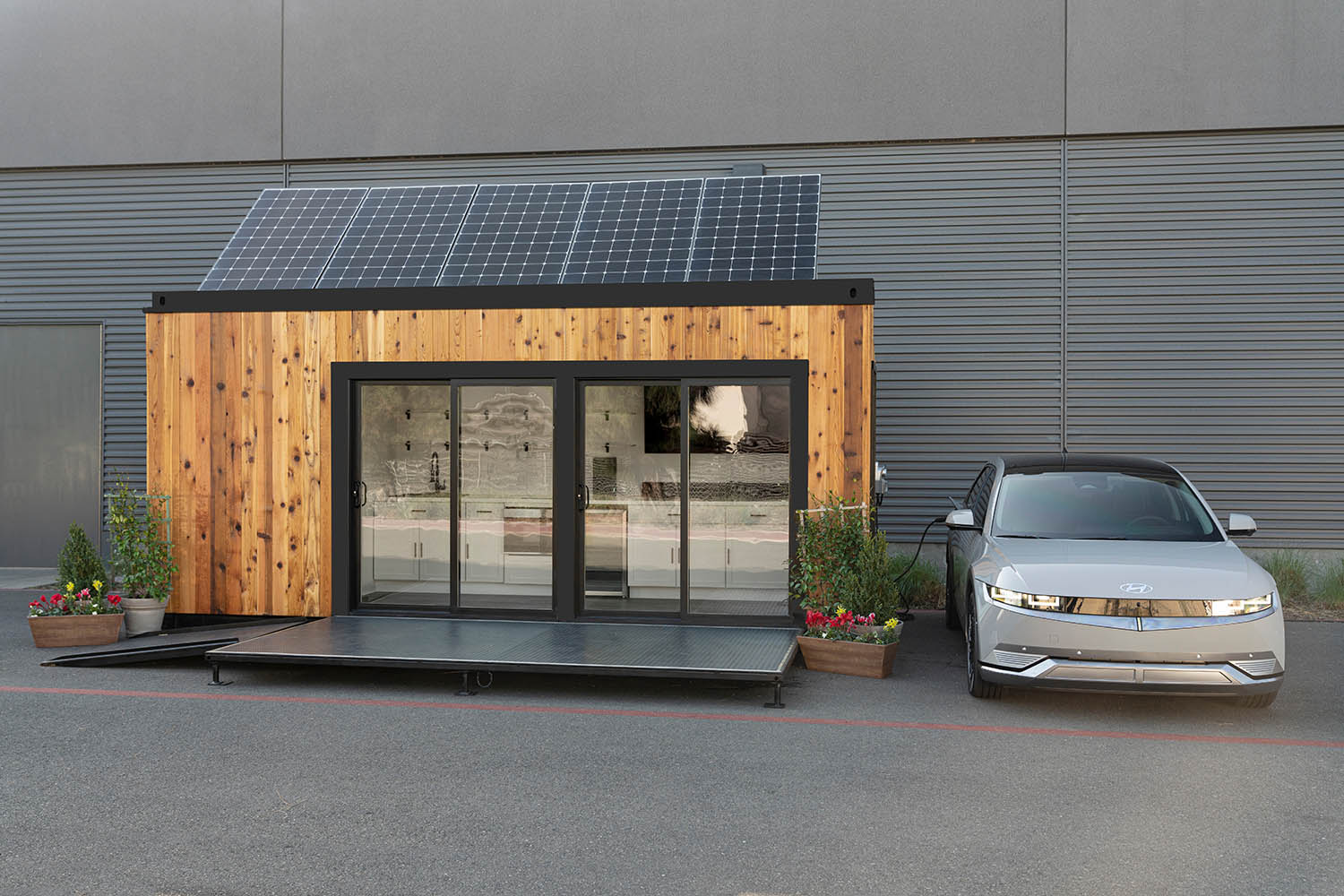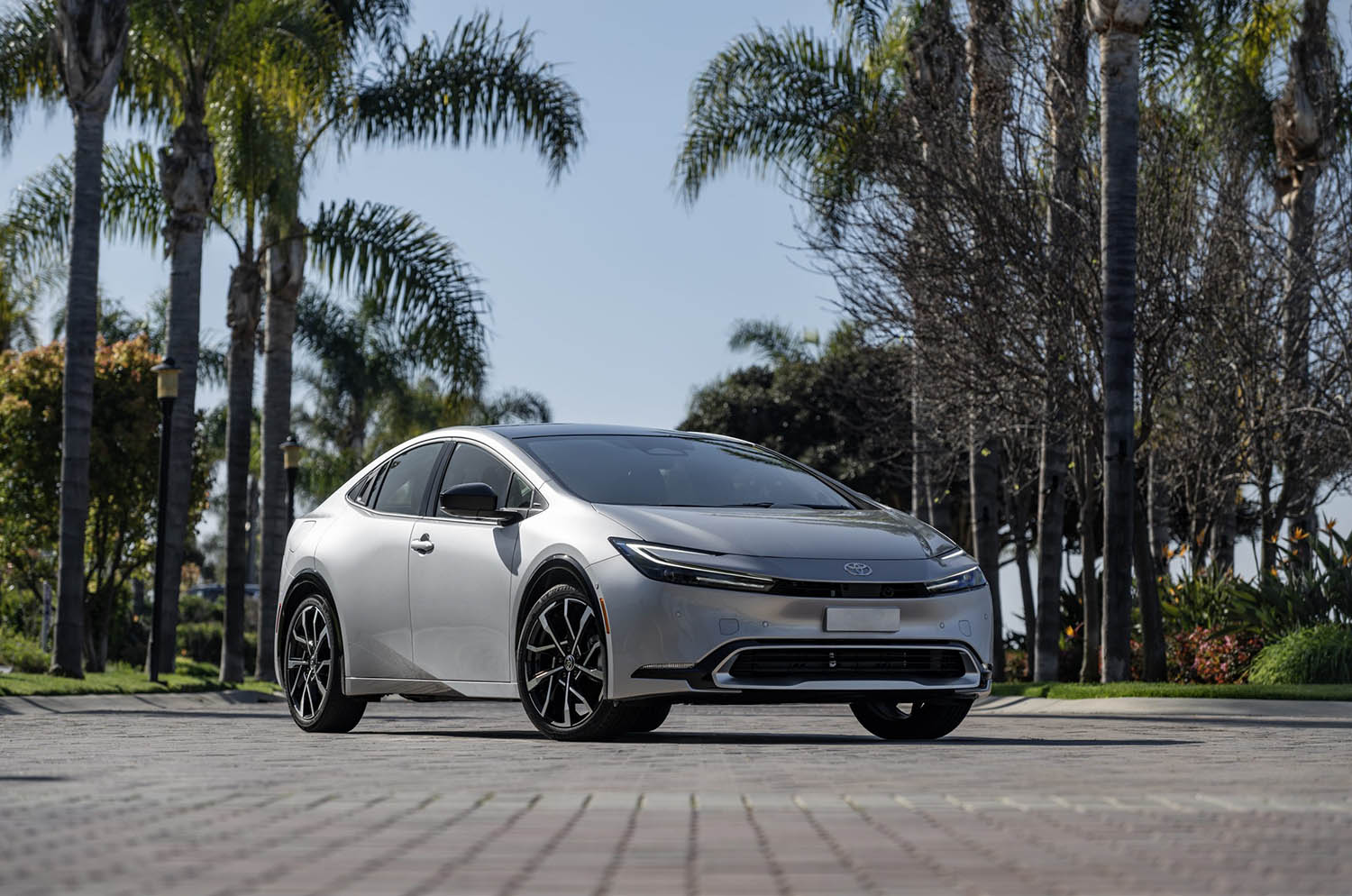Can Solar Panels Charge an Electric Car?
Solar power can be harnessed to charge EVs at home and at standalone charging stations. Car-top panels for onboard charging may be next.
 Toyota
Toyota
Electric vehicles mean no tailpipe emissions. But the electricity that powers those EVs has to come from somewhere — and sometimes that somewhere is less eco-friendly than you might hope. Innovations in solar panel technology can make it easier for EV owners to charge their cars both at home and on the road with less impact on the environment.
 Hyundai
Hyundai
Can You Use Solar Panels to Charge an EV?
The short answer is yes. That said, making your home solar-friendly first may be the easier and better option at this point in time.
The advent of roof-mounted solar panel systems has enabled homeowners to harness the sun's energy to generate supplemental electric power, but adapting that power for the higher-voltage needs of an EV takes a bit of extra work.
To produce the electricity needed for a standard 240-volt charger (the kind typically installed at a house; they're also known as Level 2 chargers), your residential system needs an adequate number of rooftop panels. Solar.com's Solar Learning Center says between six and 16 panels should be enough to do the job for most current EVs.
You'll need some other equipment, too. A central or string inverter can link the panels together and change their DC output to AC power. For convenience, your setup should include a wall-mounted EV charger. And given that solar panels directly generate energy only during the day, consider getting an auxiliary storage battery to hold that power for 24-hour EV use.
The reward for all this extra effort? Once the setup is properly installed, the Solar Learning Center claims, you may find that electricity generated by a solar-backed EV charging system can cost half as much as power from the electrical grid and about 80% less than using public chargers or buying gas for a typical 30-mpg vehicle.
 Toyota
Toyota
Car-Mounted Solar Panels
Considering the size of the residential solar panels needed to fully charge an EV, it's not hard to see that much smaller car-mounted panels won't quite do the trick. But they could still help boost the range of your EV by topping up your battery.
Carmakers have experimented with low-voltage solar panels to help add range to hybrid vehicles. The 2020 Hyundai Sonata Hybrid, for example, has an optional 205-watt solar panel roof that was designed to deliver up to 700 extra miles a year. Solar panels are also on the 2023 Toyota Prius Prime plug-in hybrid, helping to recharge the battery when the car is parked and also supplying extra power to the ventilation system when you're driving.
The fully electric Fisker Ocean, a compact SUV, is equipped with solar panels covering its entire roof, which the company says can give the vehicle as much as 2,000 miles of extra range each year "under ideal conditions." Solar panels were initially promised on the Toyota bZ4X, but they're not currently available on U.S. models.
 Toyota
Toyota
Solar-Powered EV Charging Stations
Another option comes in the form of solar panel-powered, standalone EV charging systems, including those designed for locations that can't easily be connected to the electrical grid.
In 2022 the U.S. Department of Veterans Affairs announced it was buying 140 solar-powered EV stations to be used at more than 30 sites across the country.
Paired Power, meanwhile, makes the PairTree, a small solar power station that uses its 5-kW solar panels to feed a Level 2 charger and give an EV about 75 miles of range daily. Beam Global makes a similar but larger system that can power up to six EVs at once. With its substantial battery storage, it can charge vehicles even after the sun goes down.
Written by humans.
Edited by humans.
 Andy Stonehouse
Andy StonehouseAndy Stonehouse literally fell into the world of auto writing while working as a ski-town journalist, and has not looked back since. A childhood spent dealing with the eccentricities of a 1976 MG Midget has made any subsequent auto experience a more safe and reliable drive. He has been blessed with nearby mountain trails and snowy roads in Colorado to do TV-adventure-styled test drives on a weekly basis.
Related articles
View more related articles